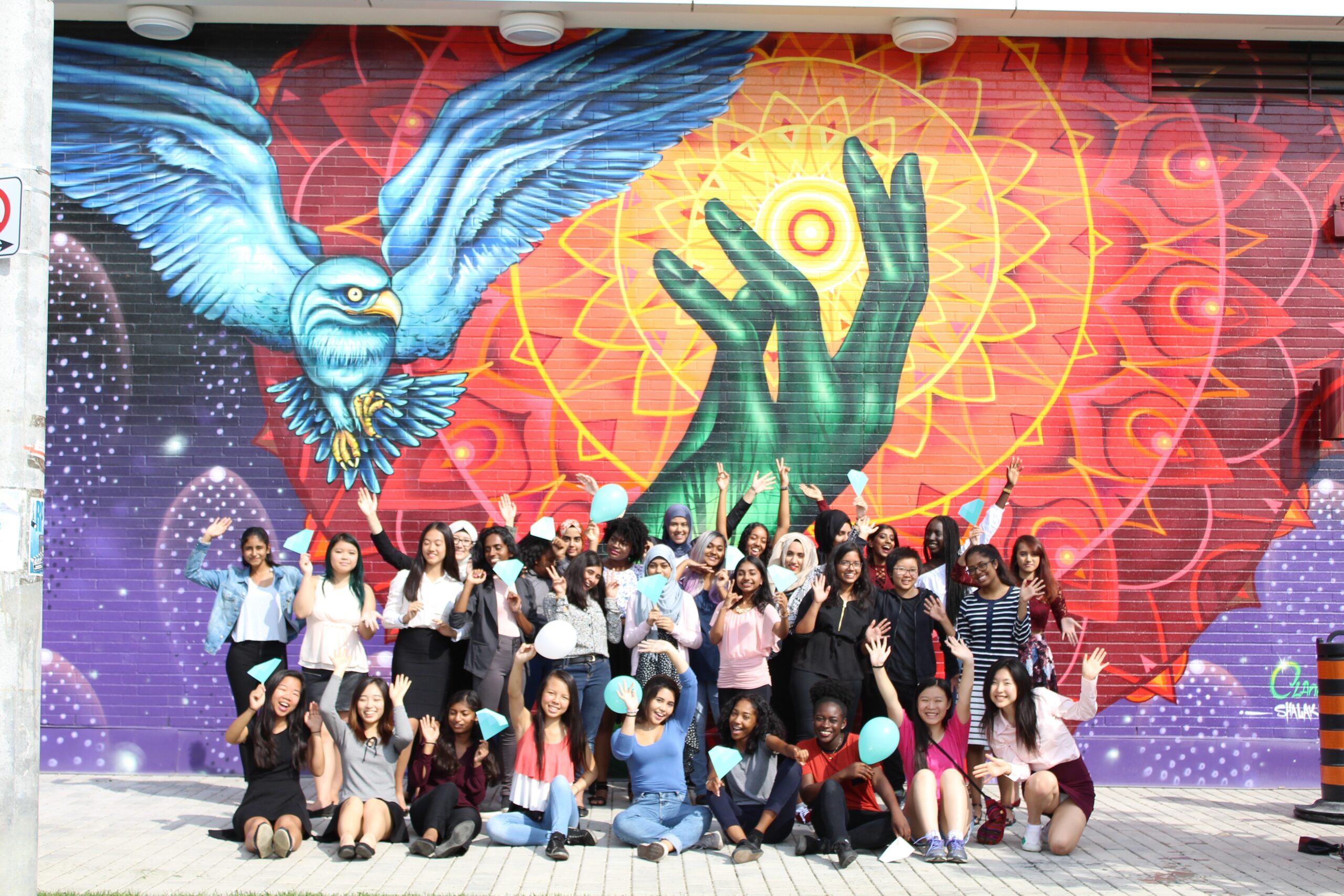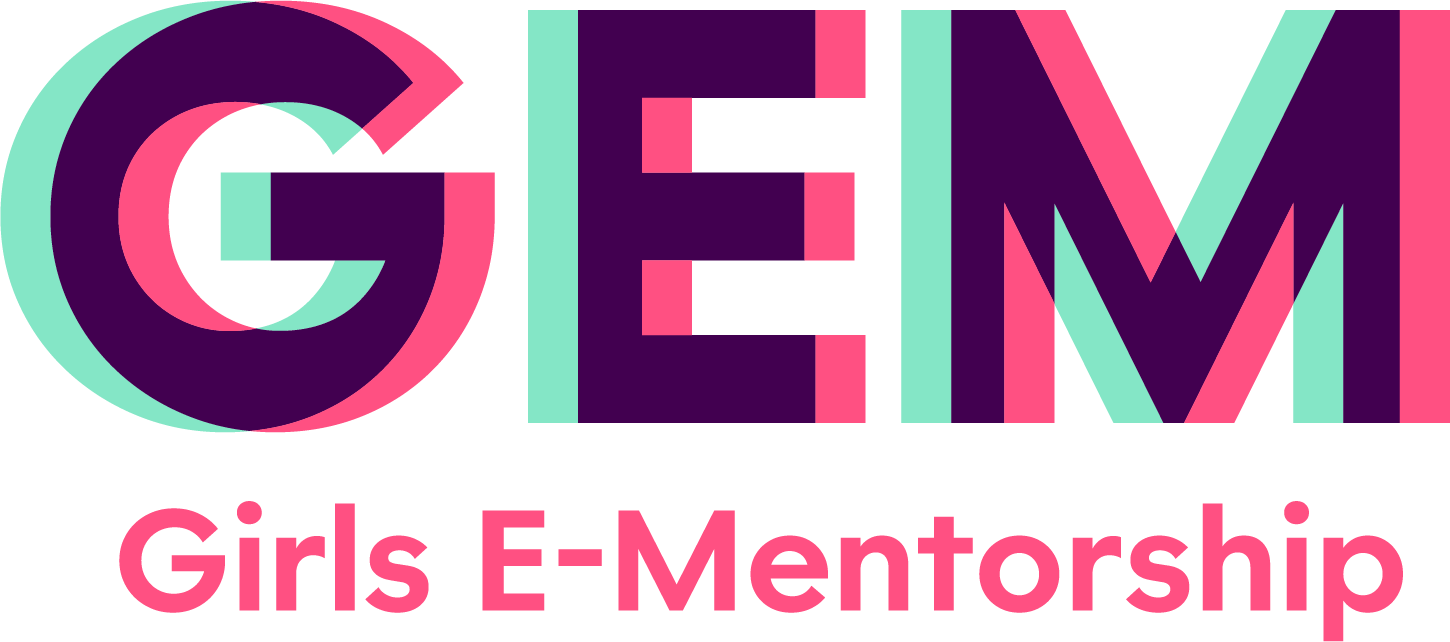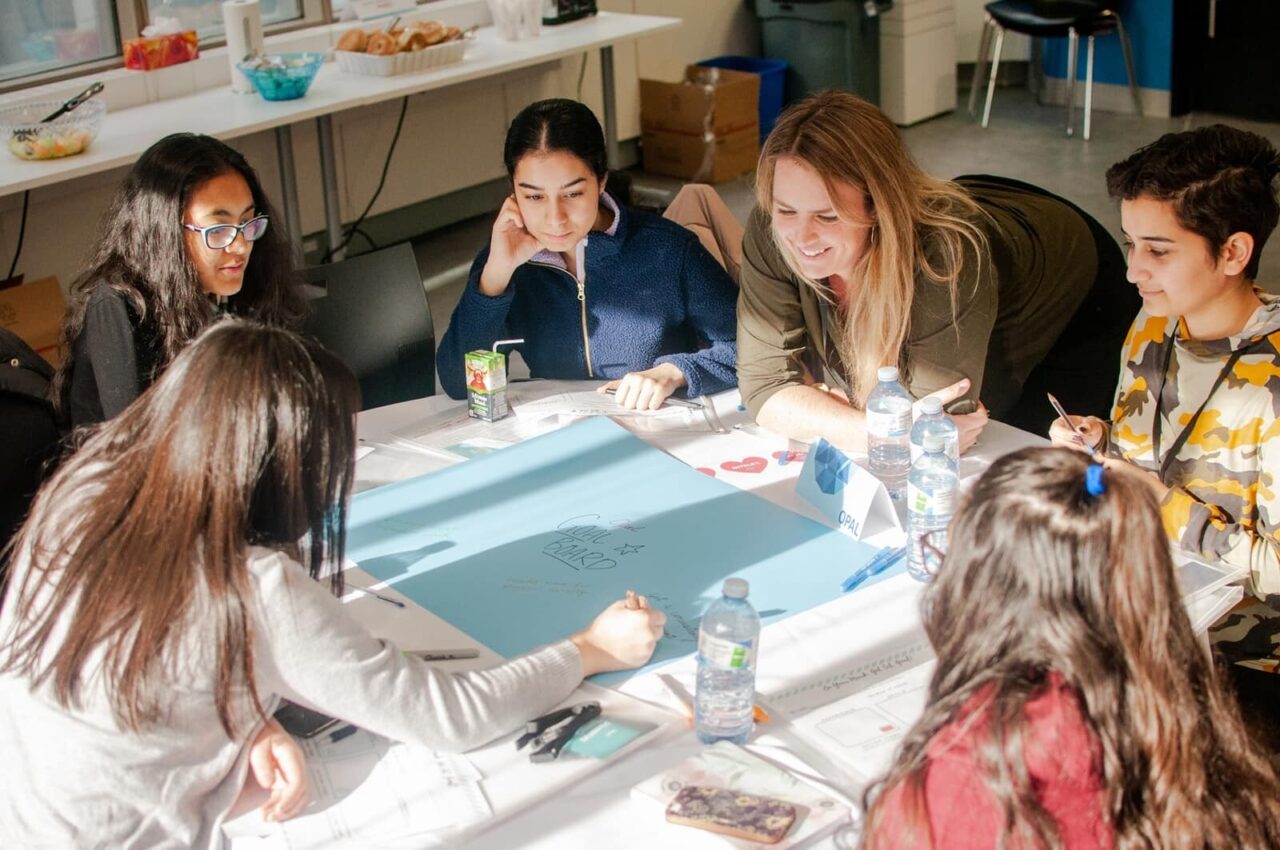 Empower Her: Bridging the Gap with E-Mentorship
Empower Her: Bridging the Gap with E-Mentorship
Connecting secondary school aged girls with guidance for success
Maya came from a new immigrant, multi-generational family home, where English wasn't spoken. Despite the warmth of her family, Maya often felt alone with her dream of higher education and a career. With no English speakers at home, she couldn't rely on family for guidance and support. This left her feeling alone and isolated, especially at school. Desperate for guidance, Maya found Girls' E-Mentorship (GEM). Through GEM, Maya was paired with a mentor named Sarah, a successful engineer. Sarah's impact on Maya was profound. Not only did she guide her academically, but she also served as an inspiration and source of empowerment. With Sarah's help, Maya gained confidence and clarity about her goals. Sarah introduced Maya to various opportunities and networks, broadening her horizons and nurturing her ambitions. Despite her daily barriers and complexities of immigrant life, Maya thrived under Sarah's mentorship. Thanks to Sarah's support, Maya was accepted into university.
Necessity
Mentorship program to empowering girls' futures
Activity
Girls who face daily obstacles to achieving higher education will be paired and mentored by career successful women and coached my trained staff.
Countable effort
More girls will be applying to university programs typically attended by boys resulting in more women applying for "men's" jobs.
Result
More girls are applying to GEM, resulting in more screening of mentees and mentors. Better screening, allows for better pairing and staff coaching.
Systemic effect
More women will be graduating from STEM university programs, resulting in a more competitive work force with women vying for male dominated jobs.
Background
Statistics Canada, 2021, reported women were more likely than men to desire a bachelor’s degree or above as their highest level of education, they were also more likely to report obstacles preventing them from going as far in school as they would like, compared with men. Women face numerous obstacles in pursuing education: Societal Expectations. Gender norms may prioritize family duties over schooling, discouraging women from pursuing higher education. Financial Constraints: High costs of tuition, textbooks, and transportation make education unaffordable for many women, particularly those from low-income backgrounds. Childcare Responsibilities: Balancing childcare with education is challenging, especially for single mothers or those lacking support. Gender Discrimination: Bias in institutions limits women's access to resources and opportunities, discouraging them from certain fields. Lack of Role Models: Few visible female role models in male-dominated fields may undermine women's confidence in pursuing such careers. Cultural Barriers: Societal norms may devalue girls' education, restricting opportunities and perpetuating stereotypes. Safety Concerns: Fear of harassment or violence in school environments may deter women from attending. Addressing these barriers requires gender-sensitive policies, financial aid, childcare support, promoting gender equality, challenging stereotypes, and ensuring safe learning environments.
The good deed
Girls' E-Mentorship (GEM) tackles these challenges through mentorship, empowerment workshops, financial scholarships, community outreach, skill-building programs, and advocacy. Pairing girls with mentors, offering empowerment workshops, engaging communities, imparting skills, and advocating for policy changes, GEM creates an environment where girls can thrive academically and professionally, breaking barriers and realizing their potential.

About Canada
Toronto
In Toronto, various programs and initiatives aim to support and encourage girls and young women to pursue higher education, particularly in fields where they are underrepresented, such as STEM (science, technology, engineering, and mathematics). In the STEM workforce, women account for approximately 20% to 30% of professionals, with significant variation across fields. For example, women are often underrepresented in engineering (about 13% to 20%) but have a more significant presence in life sciences.
Women make up about 30% to 40% of students in STEM programs at universities, with the percentage varying by specific disciplines. For instance, women are better represented in biological sciences compared to engineering or computer science.
Uzbekistan has one of the highest rates of female students in STEM fields, with approximately 57% of STEM graduates being women. This high participation rate is attributed to the country's emphasis on education and initiatives aimed at promoting gender equality in technical fields.
Toronto: Canada's largest city, home to 7 sports teams, 40M annual visitors, 10M trees, and the iconic CN Tower.
About the organization and further information

GEM Girls E-Mentorship
Website
https://www.girlsmentorship.com
Further information and source
- • Insights on Canadian Society Unmasking differences in women’s full-time employment
- • Economic and Social Reports Gender-related differences in desired level of educational attainment among students in Canada.
- • A portrait of educational attainment and occupational outcomes among racialized populations in 2021.




